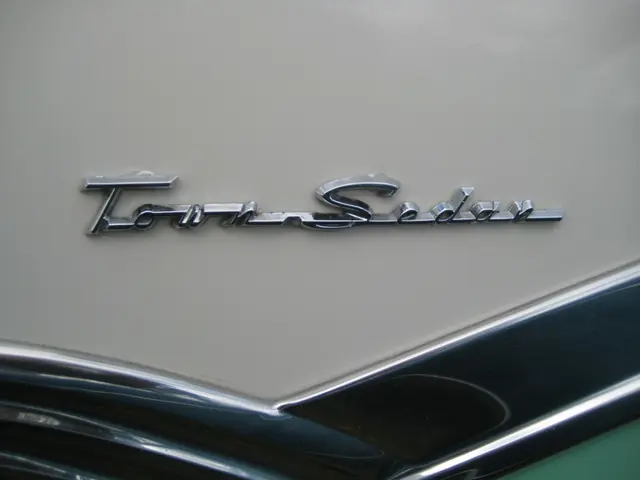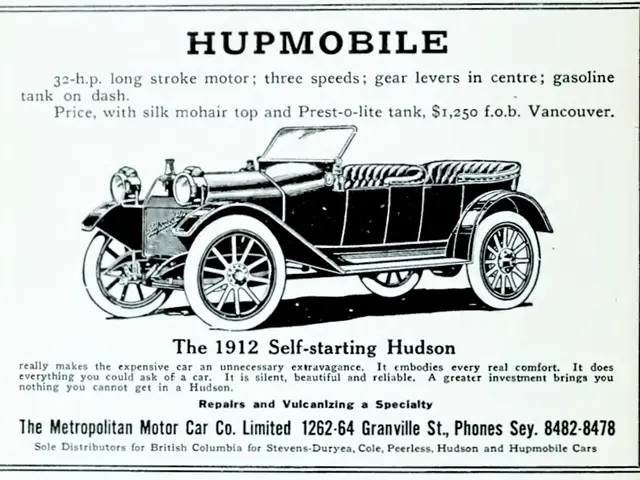Going Green: Say Goodbye to Fuel and Hello to E-Taxis, But Why Isn't It That Easy?
Converting diesel engines to electric: Reasons behind doubts about e-taxis - Questioning Fuel Changes: Understanding the Skepticism towards Electronic Taxis
Twistin' the tide in Hamburg, the future has already arrived for taxi rides- emission-free vehicles are the new norm, and that's just the beginning. However, the road ahead isn't smooth for all- opinions among taxi drivers vary, especially in states like Baden-Württemberg. Let's dig into why e-taxis face challenges and see if it's a model worth following.
What's the low-down on the e-taxi scene in Hamburg?
In the Hanseatic city, over 600 out of 3000 taxis run on electricity, with others powered by hydrogen. This switch has slashed many thousands of tons of carbon dioxide emissions. The city has even setup 6 exclusive fast chargers with 12 charging points at taxi stands, making it a breeze for drivers to power up. As of now, all new taxis must be emission-free; for larger and wheelchair-accessible taxis, this rule applies from 2027. But fear not, older combustion engines won't be completely phased out just yet. The city also extends a helping hand to taxi entrepreneurs looking to switch to electric drive.
But what's the story in Baden-Württemberg?
From 8000 taxis in the state, most still rely on diesel or gasoline. With a focus on clean air, the ministry of transport is fostering a switch, offering a generous subsidy of 3000 euros for each e-taxi. Freiburg has welcomed the "E-Taxi funding program", yet deems an increase necessary.
While a commitment similar to Hamburg's isn't on the cards for Baden-Württemberg, the ministry is open to dialogue with cities aiming to boost e-vehicle quotas through incentives. "We'll see how successful this is," a spokesman said.
Minister Winfried Hermann has praised the e-taxi concept, pointing out that they are predestined for the switch. City driving, numerous breaks, and wait times make it easy for e-taxis to charge during non-driving hours.
What do taxi drivers in the state think?
Thomas Laschuk, head of the Taxi Association Germany in Baden-Württemberg, is skeptical of the switch. He found the e-taxi he tested in a brief stint to be impractical. Passengers, he says, simply want a clean car, a competent driver who speaks German, and to make it from Point A to B quickly and affordably. Laschuk estimates that 50 to 60 e-taxis are likely to be running in the state capital Stuttgart by year-end.
Nuri Altun, chairman of the Taxi Association Baden-Württemberg, differs in opinion. He finds the shift to emission-free taxis commendable, as everyone should play their part in fighting climate change. Altun himself will soon receive an e-vehicle.
What's the problem with the e-taxi revolution?
Altun laments that he's been trying to persuade taxi companies to switch for years. Many drivers lack information about e-cars and find it hard to adopt something new. The problem of charging infrastructure and battery range also looms large.
Laschuk argues that with a diesel taxi, he could drive 1000 kilometers, whereas with an electric car, he'd struggle to get from Karlsruhe to Frankfurt Airport if the battery only lasts 150 kilometers. "Do I tell the passengers: I need half an hour to charge? They'll give me the finger," Laschuk says, pointing out that more charging stations don't solve the problem for him. "How many charging stations do you want to install for 250 taxis in Karlsruhe?"
What's in it for taxi drivers?
Apart from state funding, some cities are also trying to lure drivers with incentives. Altun views the exclusive, rapid charging stations in Stuttgart that taxis can use for free as a major perk.
Other cities approach the issue differently. Karlsruhe relies on public fast-charging stations, such as the 4 pillars with 8 charging points at the south entrance of the main station, with more planned in the city center. Freiburg and Heilbronn, too, refer to numerous public charging points for electric cars. Since a switch has high potential for CO2 savings, they're exploring additional options.
ADAC suggests that an ideal solution would be for the taxi industry to plan its own charging infrastructure when purchasing an electric car. "So it could be quite interesting for taxi companies to have their own charging infrastructure on the company premises," the automobile club said.
- The community policy in Hamburg embraces emission-free vehicles, with over 600 out of 3000 taxis running on electricity, a shift that has significantly reduced carbon dioxide emissions.
- In Baden-Württemberg, the majority of taxis still rely on diesel or gasoline, despite the ministry of transport fostering a switch to emission-free taxis and offering a subsidy of 3000 euros for each e-taxi.
- Thomas Laschuk, head of the Taxi Association Germany in Baden-Württemberg, finds the e-taxi concept impractical, pointing out that passengers prioritize a clean car, competent drivers, and affordability over electric vehicles.
- According to Minister Winfried Hermann, city driving, numerous breaks, and wait times make e-taxis ideal for charging during non-driving hours, thereby easing concerns about battery range and charging infrastructure.
- Nuri Altun, chairman of the Taxi Association Baden-Württemberg, encourages the shift to emission-free taxis as everyone should play their part in fighting climate change, and he himself will soon receive an e-vehicle.
- Altun criticizes the lack of information and reluctance among taxi drivers to adopt electric cars, highlighting this as a major obstacle to the e-taxi revolution, along with concerns about battery range and charging infrastructure.








